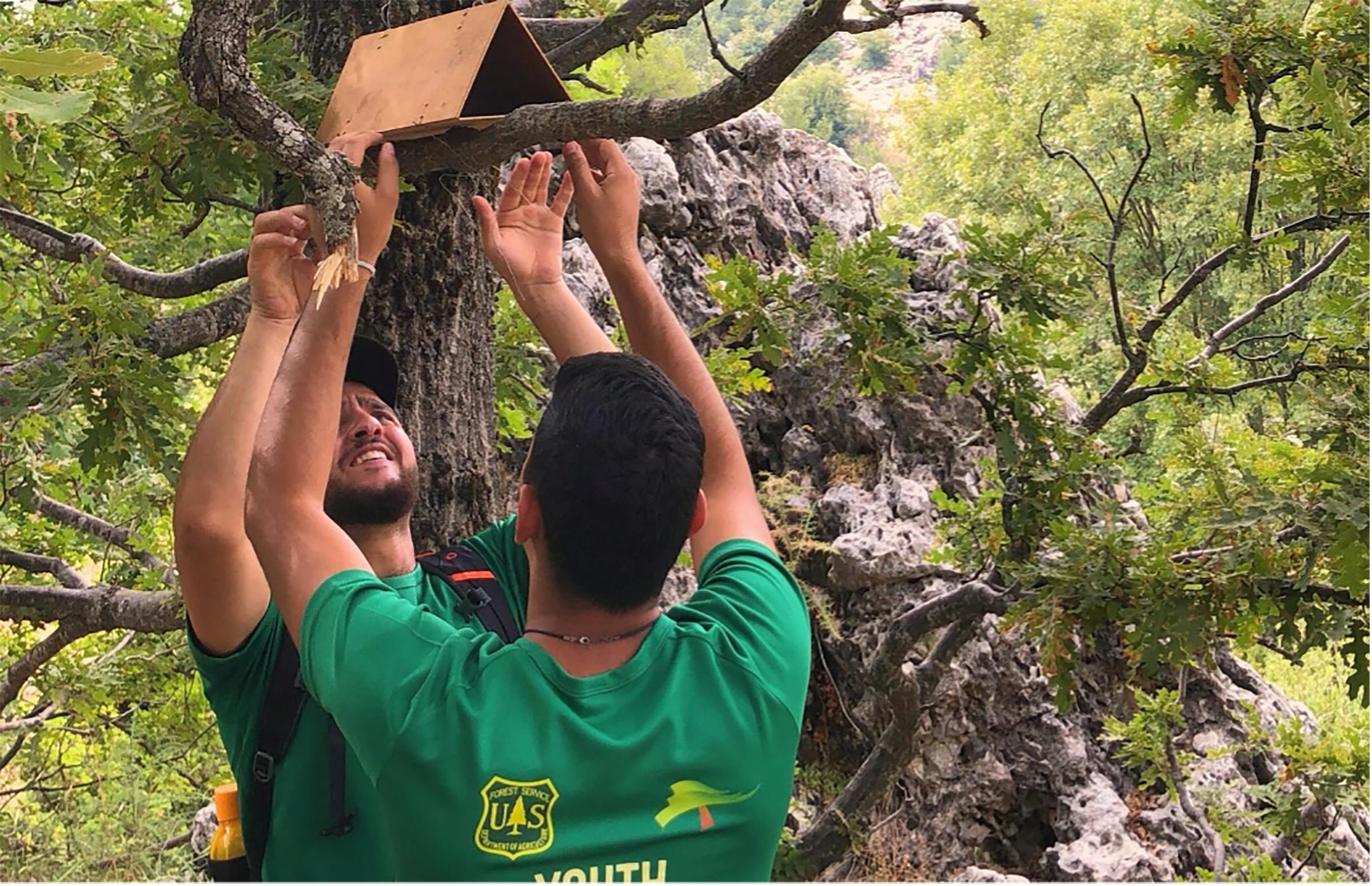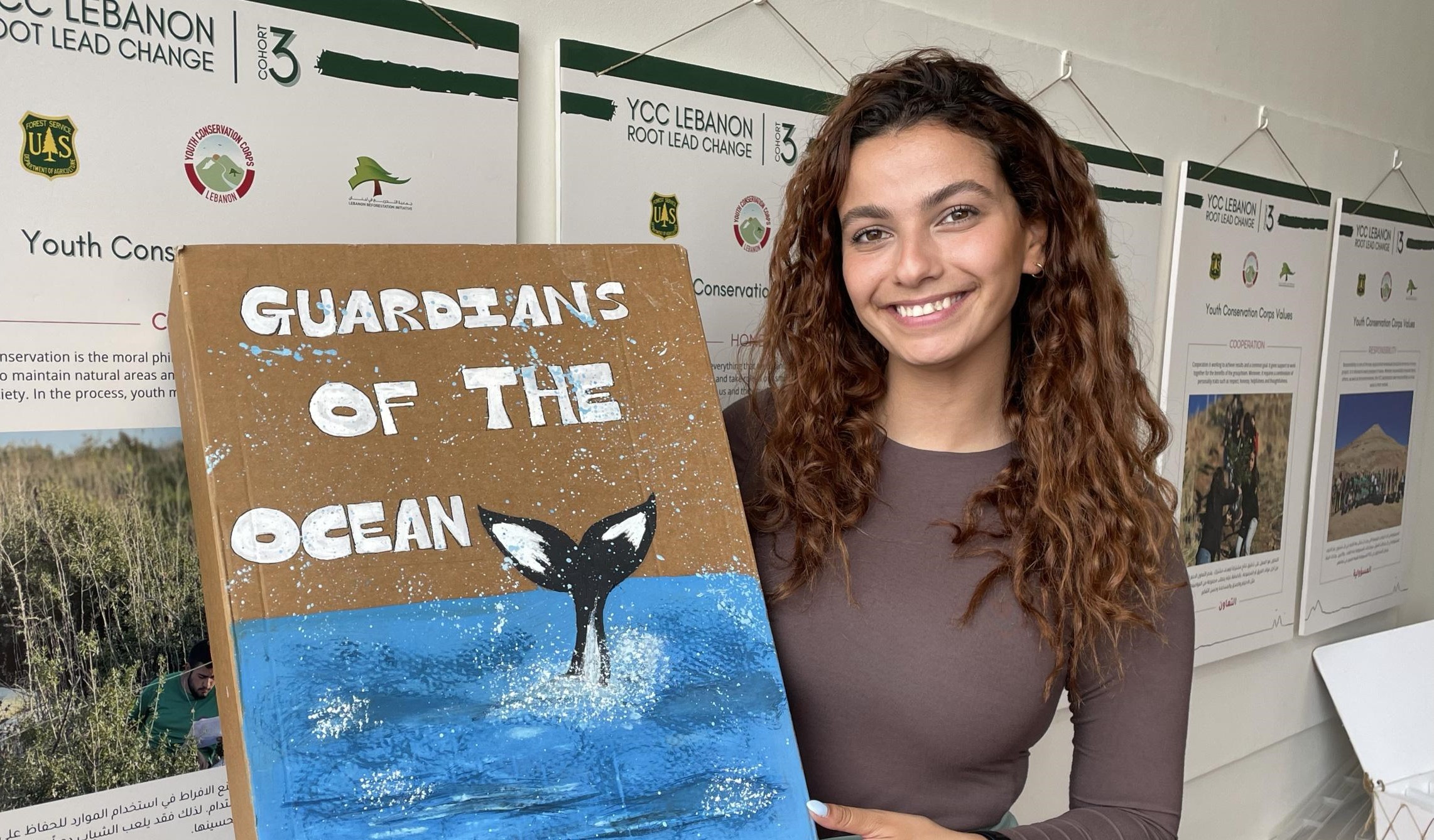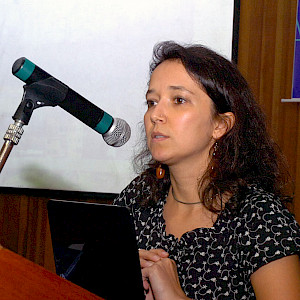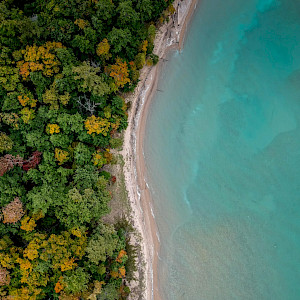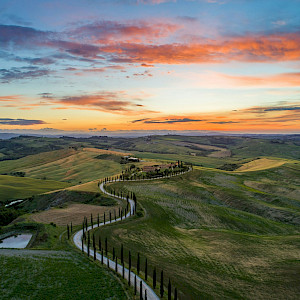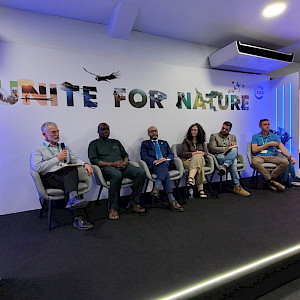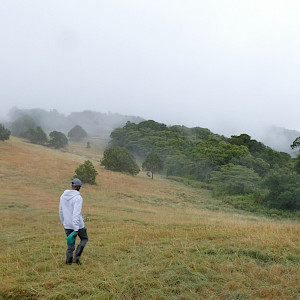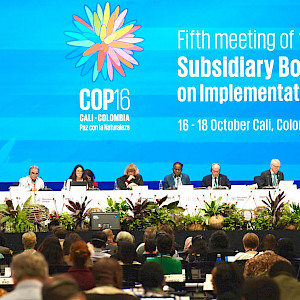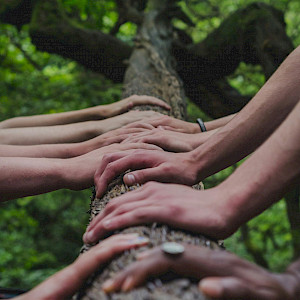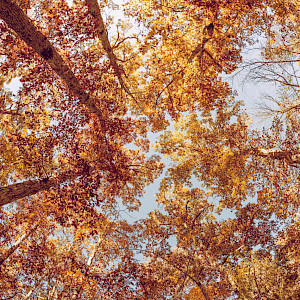Youth-led conservation efforts create hope for a greener future
In the hills north of Beirut, Lebanon, a group of young citizen scientists collects the footprints of small mammals using contact paper and charcoal. They are hoping they might find signs of forest dormice, a fluffy-tailed, squirrel-like animal that thrives in dense forests. But forest dormice are no longer common in Lebanon, where rapid urbanization, unsustainable forestry practices, and, increasingly, wildfire have reduced Lebanon’s forest cover to just six percent, leaving a highly urbanized population vulnerable to flooding, compromised ground water and polluted air.
Since 2011, the Lebanon Reforestation Initiative (LRI) has been trying to counter deforestation and nurture a new generation of conservation leaders. With support from the U.S. Agency for International Development (USAID) and the USDA Forest Service, LRI has planted more than 1.5 million native tree species throughout Lebanon, with an average survival rate of 76 percent. In Rachaya, one of many reforestation sites and just 10 kilometers from the Syrian border, hillsides are green again along a 35-kilometer corridor. Families now picnic in the shade of eight-year-old pine trees. As a bonus, when the trees reach 10 years, the municipality will lead the harvesting of lucrative pine nuts.
The Lebanon Reforestation Initiative R&D Unit is addressing knowledge gaps critical for wildlife conservation and ecological restoration. A pilot study conducted in 2020 using environmental DNA (eDNA) from water samples (yet to be published) identified the presence of the forest dormouse (Dryomys nitedula). This discovery suggested the potential residency of this species within the protected confines of the Horsh Ehden Nature Reserve. This hypothesis was then confirmed through footprint tunnels and camera traps in 2022. The re-discovery of forest dormice shows that efforts to restore these landscapes also help to protect Lebanon’s unique wildlife and their endemic habitats.
The young, footprint-collecting scientists are participants in a Youth Conservation Corps, a six-month leadership development and job skills training program for 18–24-year-olds implemented by LRI and supported by the USDA Forest Service. The program began in 2021 and is modeled closely after the celebrated Youth Conservation Corps program in the United States. Collecting data for LRI’s Research and Development (R&D) Unit is just one of many activities that help the youth gain conservation skills and better understand the ecosystem around them.
“It’s all related to restoration and reforestation. We need baseline assessments to understand if our reforestation is having an impact. You need a baseline of a healthy ecosystem… It’s all related, after all,” said Wildlife Specialist Mahmoud El Hajj from the LRI R&D Unit.
YCC participant Stephanie Nasr said, “It was exciting to find the footprints and send them to the R&D Unit.”
Before sending the footprints to the R&D unit, Stephanie and her peers use Footprint Identification Technology developed by the international species monitoring organization WildTrack. They learn how citizen scientists around the world can inform species conservation, and they get exposed to international research collaborations.
Stephanie graduated from YCC in 2023. Like many of the graduates, 75 to date, she now works in the conservation field. Instead of collecting small mammal prints, she collects wild bees – another keystone species for understanding ecosystem health. She supports the LRI collaboration with Beesline, a Lebanese company that sells products made from honey.
“I’ve loved this opportunity. It’s expanded my perspective and research skills. I’m looking forward to understanding more species,” said Stephanie.
Stephanie exudes passion about wildlife and research. She had wanted to go to veterinarian school, but there aren’t many options in Lebanon, and universities are expensive. YCC targets underserved communities and provides opportunities for young people who have been caught up in Lebanon’s economic crisis, which has devastated the middle class and contributed to significant emigration.
During her YCC program, Stephanie was astounded to learn that there are orcas in the Mediterranean Sea that surrounds Lebanon. The realization inspired her and three of her classmates to research orcas and create an interactive board game. YCC is in the process of replicating the board game for sale and greater use worldwide. The games raise public awareness about Lebanon’s wildlife and help bridge gaps between science and people.
The YCC program only reaches 26 participants per year, but nearly every activity includes community outreach, and YCC graduates become conservation ambassadors wherever they go. Like Stephanie, they exude passion for their experience and for the world around them. The six-month program has transformed their lives. They now have the confidence and skills they need to run community events, pursue their own small businesses, or get jobs with the skills they learned. YCC graduates maintain a strong network through social media and WhatsApp. They compare notes on bee keeping and invite each other and the communities within which they live to events like rosewater soap making and rural tourism initiatives. YCC graduates are leading landfill restoration projects, contributing to LRI restoration initiatives, and educating youth about the need for conservation. They are change makers in their communities.


